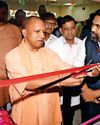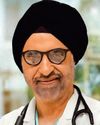कोशिश गोल्ड - मुक्त
Reimagining Residential Schools
THE WEEK India
|October 19, 2025
A Hypothetical Futuristic Model of Modern Joint Families System
-
Every civilization has relied on the family as its foundational social institution. In India, the joint family once embodied that role: a living system where grandparents, parents, siblings, and cousins together transmitted skills, values, rituals, and social roles through daily life. Its strengths— intergenerational learning, emotional security, economic resilience, and cultural continuity— were sustained by shared time, elder mentorship, pooled resources for caregiving, and constant daily contact. Though the joint family's form has changed, its functional strengths remain worth preserving.
The joint family’s decline is rooted in predictable social forces: urbanization, geographic mobility, housing constraints, and rising individualism. As families moved for work and space became scarce, the social furnace that forged responsible, socially grounded adults began to cool. Overburdened parents now juggle professional demands with children’s educational and emotional needs, often without the steady support of elders. The result is an erosion of routine, informal value transmission and a widening gap in daily mentoring that previous generations took for granted.
This breach raises a pragmatic question: who will assume the mentoring, moral guidance, and communal socialization the joint family once provided? One promising, though imperfect, answer is a reimagining of residential schools—institutions that, if redesigned, could reproduce many of the joint family's social functions while remaining rooted in formal education.
Residential schools already replicate certain family dynamics. Students live, eat, play, study, and celebrate together; they form lasting friendships, learn to share space, resolve conflicts, and take on household tasks. Housemasters and housemistresses often act as more than teachers: they mentor, discipline, and foster emotional growth.
यह कहानी THE WEEK India के October 19, 2025 संस्करण से ली गई है।
हजारों चुनिंदा प्रीमियम कहानियों और 10,000 से अधिक पत्रिकाओं और समाचार पत्रों तक पहुंचने के लिए मैगज़्टर गोल्ड की सदस्यता लें।
क्या आप पहले से ही ग्राहक हैं? साइन इन करें
THE WEEK India से और कहानियाँ

THE WEEK India
AI ALONE WON'T HEAL INDIA'S HEALTH CARE
India needs a mission-driven, public-first approach in using AI for health, not a race to mimic the west
4 mins
November 23, 2025

THE WEEK India
A Lifeline of Hope Compassionate Revolution ft. Sushena Health Foundation
In a world often focused on metrics and outcomes, a quiet but profound revolution based on compassion and equitable access is being envisioned.
2 mins
November 23, 2025

THE WEEK India
Precision is the New Default Why Robotic Surgery Has Become the Mainstream
In a world where our phones unlock with a glance and our cars can drive themselves, it would be unfair if the operation theatre remained trapped in yesterday's technology. Surgery today is about purposeful precision with every movement measured, every outcome intentional. The evolution of robotic surgery represents this very shift — from ‘good enough’ outcomes to outcomes that are consistently excellent and predictable.
1 mins
November 23, 2025

THE WEEK India
New kids on the stage
For these next-gen actors, theatre holds as much appeal as stardom in cinema
5 mins
November 23, 2025

THE WEEK India
Precision Driven IVUS-NIRS Technology is Transforming Cardiac Care
Dr Balbir Singh, Chairman and Head of Cardiology at Max Healthcare, is a recipient of numerous prestigious honours, including the Padma Shri, for his exceptional skills and contributions in interventional cardiology and electrophysiology. Dr Singh has performed thousands of Intra-Vascular Ultrasound (IVUS) driven Angioplasties. IVUS is used in angioplasty to provide doctors with a detailed, real-time, three-dimensional view of the artery's interior, which helps them to precisely assess blockages, guide stent placement, and confirm the success of the procedure.
3 mins
November 23, 2025

THE WEEK India
White Spot Lesions in Dentistry
White spot lesions (WSLs) are the earliest visible signs of dental caries, appearing as chalky white or opaque areas on tooth surfaces. They indicate early enamel demineralization and can be seen with the naked eye. Early recognition and management are essential to prevent progression into cavities.
1 mins
November 23, 2025
THE WEEK India
The New Age of Spine Surgery
Taking care of your spine begins with small, consistent habits. Maintaining correct posture while sitting or lifting, walking regularly, and strengthening back and core muscles can go a long way in preventing problems. Eating a balanced diet and keeping body weight under control also help reduce stress on the spine.
1 min
November 23, 2025

THE WEEK India
THE RED FLAG IN YOUR URINE: Understanding and Detecting Bladder Cancer
The bladder is an organ which stores urine, which is produced by the kidneys. The bladder is a hollow, viscus organ that holds it for a few hours before it is eliminated. While it can occur at any age, the median age of diagnosis is typically 70 years or older.
1 mins
November 23, 2025

THE WEEK India
INTERNATIONAL QUALITY HEALTHCARE MADE AFFORDABLE IN VELLORE
Naruvi Hospitals, creating new benchmarks in affordable world class health care, spreading its ‘Fragrance of Care’ in Vellore, and beyond.
4 mins
November 23, 2025

THE WEEK India
Richardsons Face Hospital
India's first face hospital
1 mins
November 23, 2025
Listen
Translate
Change font size
